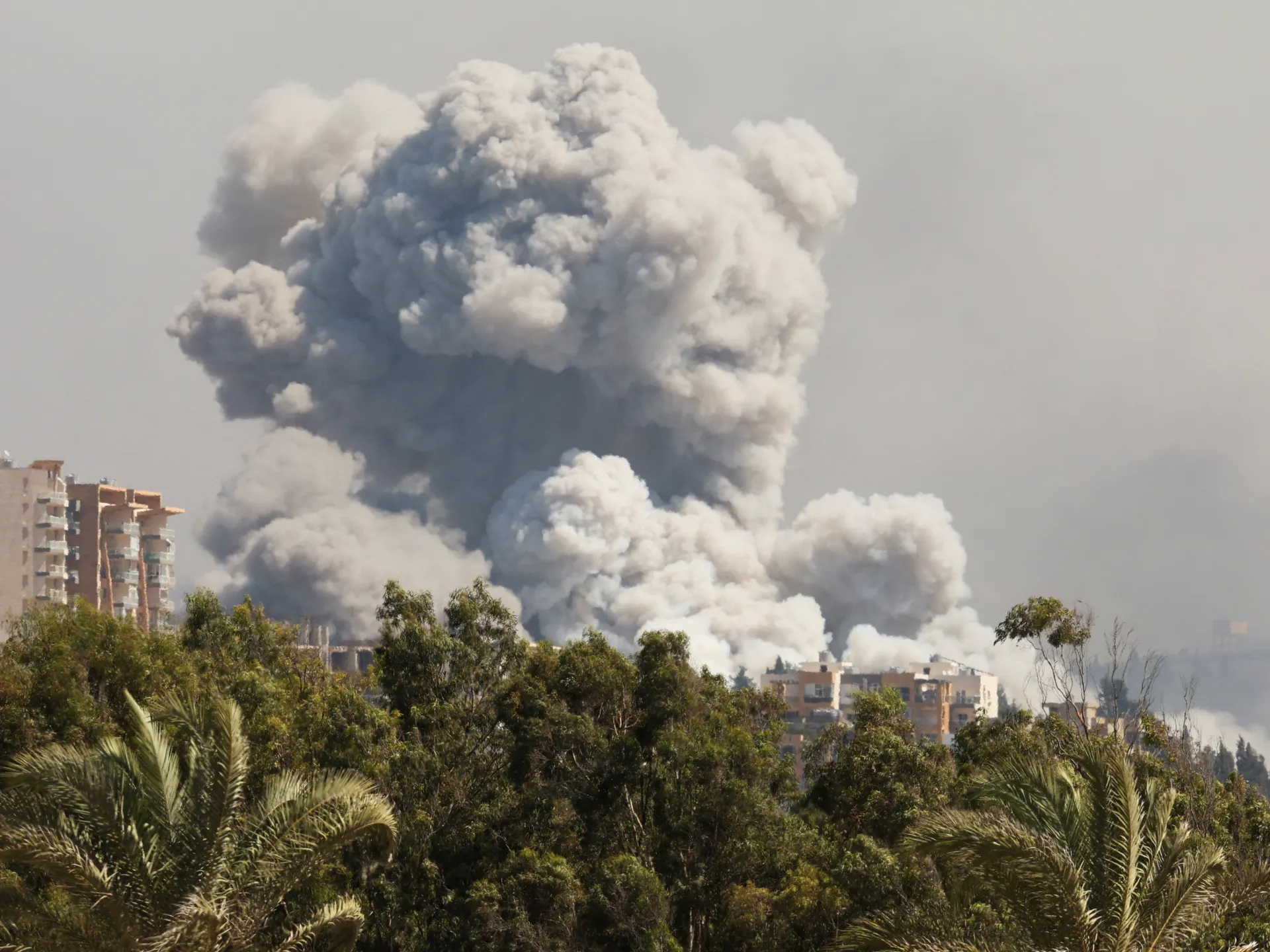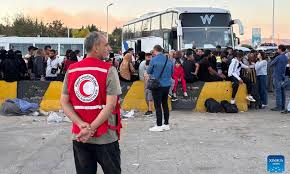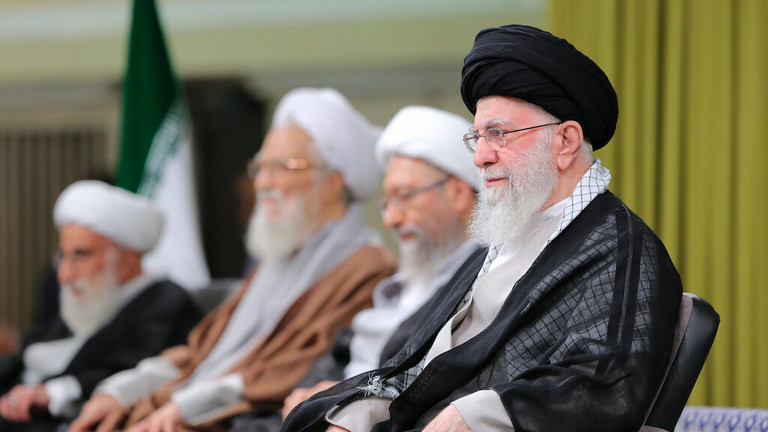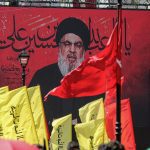World
Lebanon Reports Over 274 Dead as Israel Bombards Southern Region

Lebanese authorities confirm at least 274 casualties following intense Israeli bombardment in the southern part of the country. Stay updated on the escalating conflict and its humanitarian toll.
Israeli airstrikes predominantly targeting southern and eastern Lebanon have resulted in the deaths of at least 274 individuals and injuries to over 1,024 others, as reported by the country’s health minister. This marks the deadliest day of conflict in Lebanon since the 2006 Israel-Hezbollah war.
Firass Abiad indicated that the casualties on Monday included 21 children, 39 women, and two medical personnel, as the bombardment affected residences, medical facilities, ambulances, and vehicles of those attempting to escape.
A significant number of Lebanese have fled the southern region, with the primary highway leading out of the southern port city of Sidon congested with vehicles heading towards Beirut, marking the largest exodus since the 2006 conflict.
In response, the government has mandated the closure of schools and universities across most of the nation and has begun preparations for shelters to accommodate those displaced from the south.
Some of the attacks targeted residential neighborhoods in southern towns and the eastern Bekaa Valley. One strike even reached a wooded area near Byblos in central Lebanon, located over 129 kilometers (80 miles) from the border north of Beirut.
The Israeli military reported that it had targeted more than 800 locations associated with the Iran-backed militant group Hezbollah. The escalation of hostilities has heightened concerns regarding the potential for an all-out war between Israel and Hezbollah, or even a broader regional conflict.
READ ALSO: Lebanese PM Cancels UN Trip Amid Escalating Tensions with Israel
Israel’s military has cautioned civilians to evacuate areas it claims are utilized by Hezbollah, which had launched a series of rockets into northern Israel the day prior.
These warnings, however, overlook the reality that some residents may live in or near the targeted sites without awareness of the associated risks.
Many individuals who received these warnings expressed to Al Jazeera their uncertainty about where to seek refuge.
“They also questioned how they are expected to identify where Hezbollah has concealed its weapons,” reported Al Jazeera’s Dorsa Jabbari from Beirut.
“They do not readily disclose this information, leading to considerable confusion and frustration among the populace.”
Jabbari noted that residents in Beirut are “concerned not only about the situation in the south but also about their proximity to the unfolding events.”
The escalation of hostilities along the shared border, which has experienced minor clashes since Israel initiated its military operations in Gaza in October, follows last week’s incidents involving explosions from pagers and walkie-talkies that resulted in numerous fatalities in Lebanon.
In the early hours of Monday, Israeli army spokesperson Daniel Hagari announced that Israeli forces executed “extensive strikes” against Hezbollah positions after detecting attempts to launch rockets.
Israeli Prime Minister Benjamin Netanyahu remarked on Monday, following the strikes, that Israel was entering “complicated days” and urged citizens to maintain unity as the situation developed.
“I assured that we would alter the security equilibrium, the balance of power in the north – and that is precisely what we are accomplishing,” he stated in a message released after a situational briefing at military headquarters in Tel Aviv.
His administration has recently indicated a shift in focus towards the conflict with Hezbollah, aiming to facilitate the return of approximately 60,000 Israelis who were evacuated from border regions.
When questioned by a reporter about the possibility of a ground invasion into Lebanon, Hagari responded, “We will undertake all necessary actions to ensure the safe return of the northern residents to their homes.”
Lebanese media have reported that individuals throughout the country, including in the capital, Beirut, have been receiving warnings via Israeli phone calls advising them to evacuate.
Lebanon’s National News Agency (NNA) stated that “citizens in Beirut and several other areas are receiving landline telephone warning messages originating from the Israeli enemy, urging them to evacuate promptly.”
The office of Information Minister Ziad Makary in Beirut confirmed receiving a landline call containing a “recorded message” instructing them to evacuate the building to avoid an airstrike.
NNA characterized the phone warnings as “part of the psychological warfare that the enemy has adopted.”







